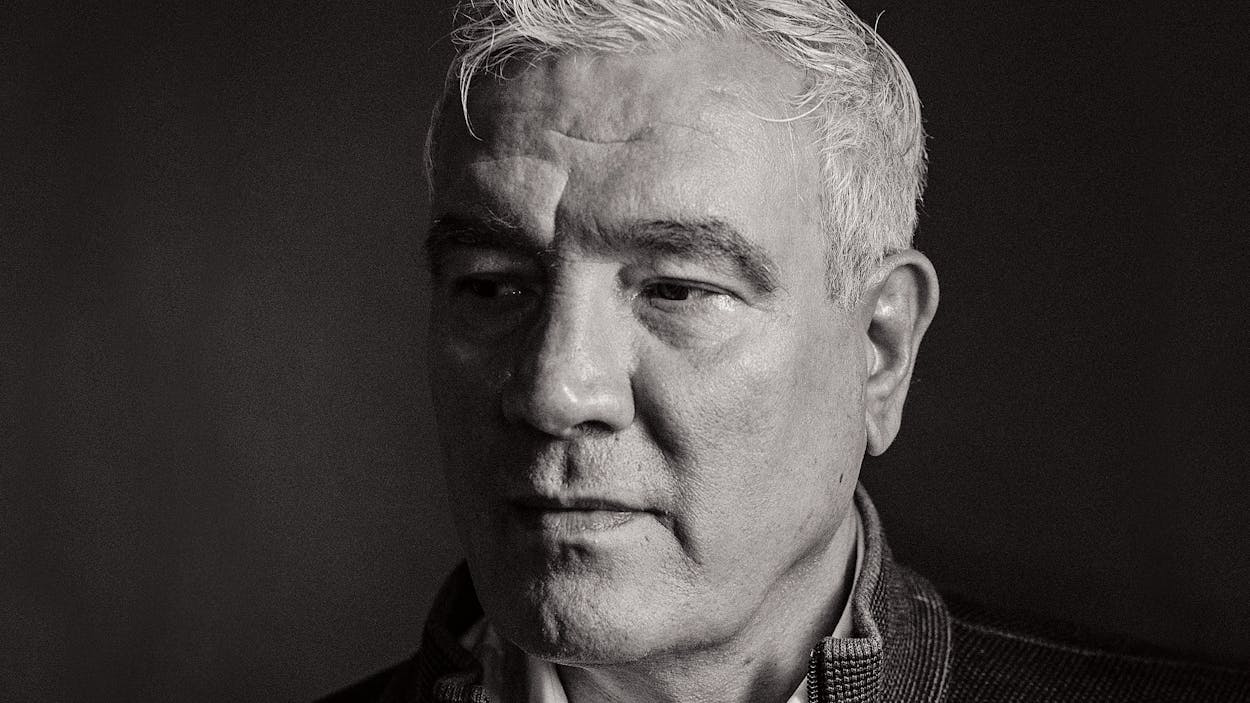Kerry Max Cook, who spent almost twenty years on death row for a 1977 murder in Tyler, has filed a federal civil rights suit against the people and institutions that sent him there. Cook engaged the prestigious law firm Loevy & Loevy to file the suit against eighteen individuals, most of them Tyler police officers, as well as the city of Tyler and Smith County. Lead counsel Anand Swaminathan said that Cook’s case “is one of the worst wrongful convictions in American history.”
The suit names many of the police officers who worked on the byzantine, forty-year-old case of the murder of Linda Jo Edwards, which Texas Monthly covered in April. Cook accuses individual cops, the police department, and sheriff’s office, as well as the city and county of depriving him of his right to a fair trial (he had three) and due process of law by destroying and withholding evidence. “Plaintiff now seeks justice for the harm that the Defendants have caused and redress for the loss of liberty and the terrible hardship that Plaintiff has endured and continues to suffer as a result of the Defendants’ egregious misconduct,” the suit reads.
Loevy & Loevy, which is based in Chicago, claims that it has “won more multi-million dollar jury verdicts over the past decade than any other civil rights law firm in the country.” The firm has recently made a name for itself by suing the city of Chicago for cases of police misconduct, as well as winning millions of dollars for victims of wrongful convictions. In 2012, Loevy & Loevy won $25 million for a man who spent sixteen years in prison for a murder he didn’t commit.
The suit might appear to be premature. It refers to Cook’s “exoneration,” saying that on June 6, 2016, his “conviction was vacated and all charges and attempts at re-prosecution were dropped.” That’s not entirely true, at least not yet. On that date a judge in a Tyler court did indeed officially accept the prosecution’s recommendation that Cook’s conviction be set aside. But the judge sent his decision to the Court of Criminal Appeals for a final sanction that is still pending. The judge also made a ruling against Cook, saying he did not feel the defendant had proved that he was actually innocent; that decision also awaits CCA approval.
Swaminathan says the CCA’s opinions in the matter won’t have any bearing on this suit: “His ability to pursue his civil case is in no way dependent on the ruling of the CCA in his criminal case. He has a right to pursue this claim because he’s not subject to a conviction anymore. He is pursuing claims that his constitutional rights were violated—that he was framed.”
Back in June the prosecution acknowledged that Cook’s due process rights had been violated when, in previous trials, it had put on false testimony from a witness—the victim’s boyfriend. And Swaminathan says that there is more evidence that the state cheated: “There is a powerful factual record, strong evidence of fabrication of a case against him, and suppression of evidence of innocence.”
The suit doesn’t name a figure Cook is seeking for compensatory or punitive damages. That was intentional, says Swaminathan. “Kerry is pursuing this case to reveal the truth. He’ll live with whatever settlement amount the jury thinks is fair.” Cook concurs. “It was never about revenge or anger,” he says. “And it’s not about money now. It was always about accountability. They made up the entire story, and I’ve had to live in fear for 40 years, an unbelievably tortured life. But I’m not the defendant any more. They’re the defendants now. It’s no fun when the rabbit’s got the gun. It’s whole different ball game.”
Kerry Max Cook — Filed Complaint by TexasMonthly on Scribd








